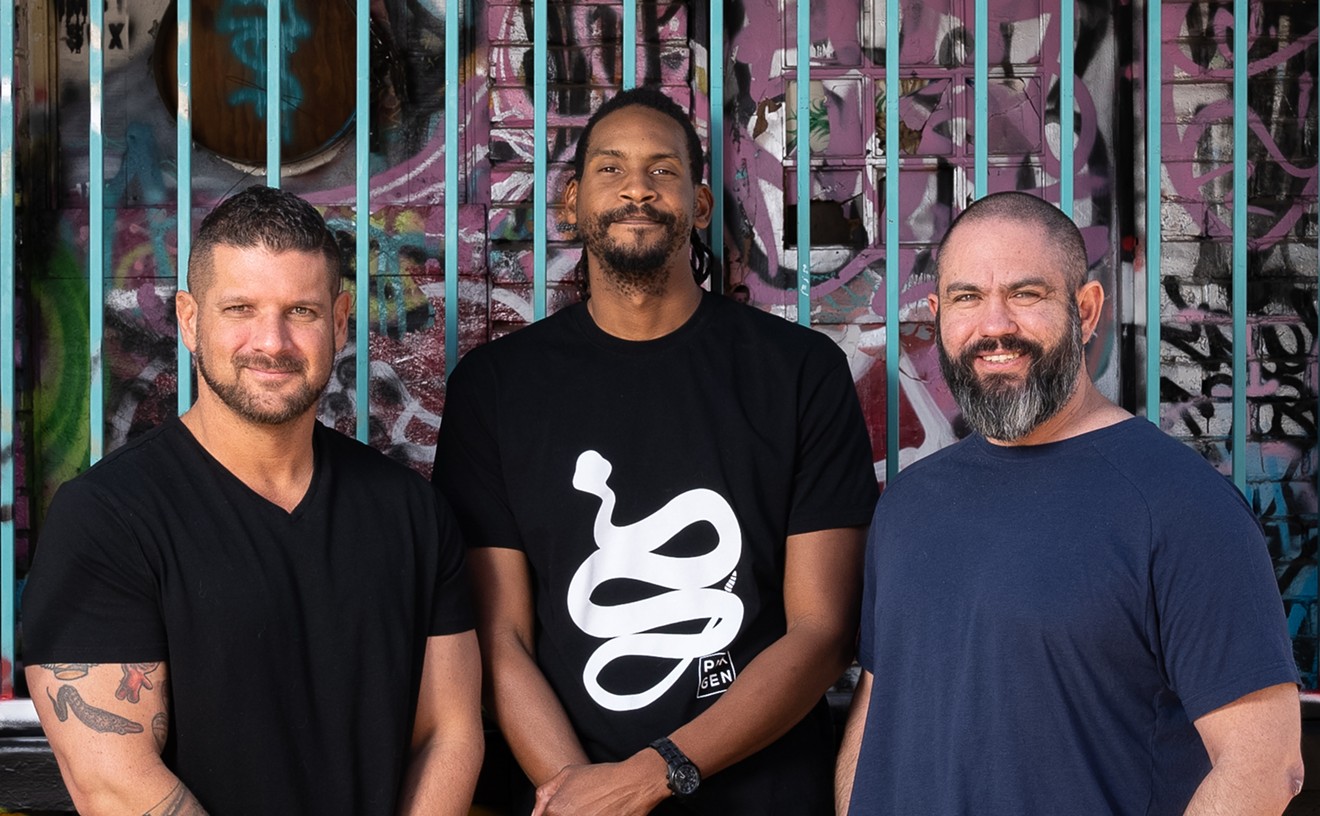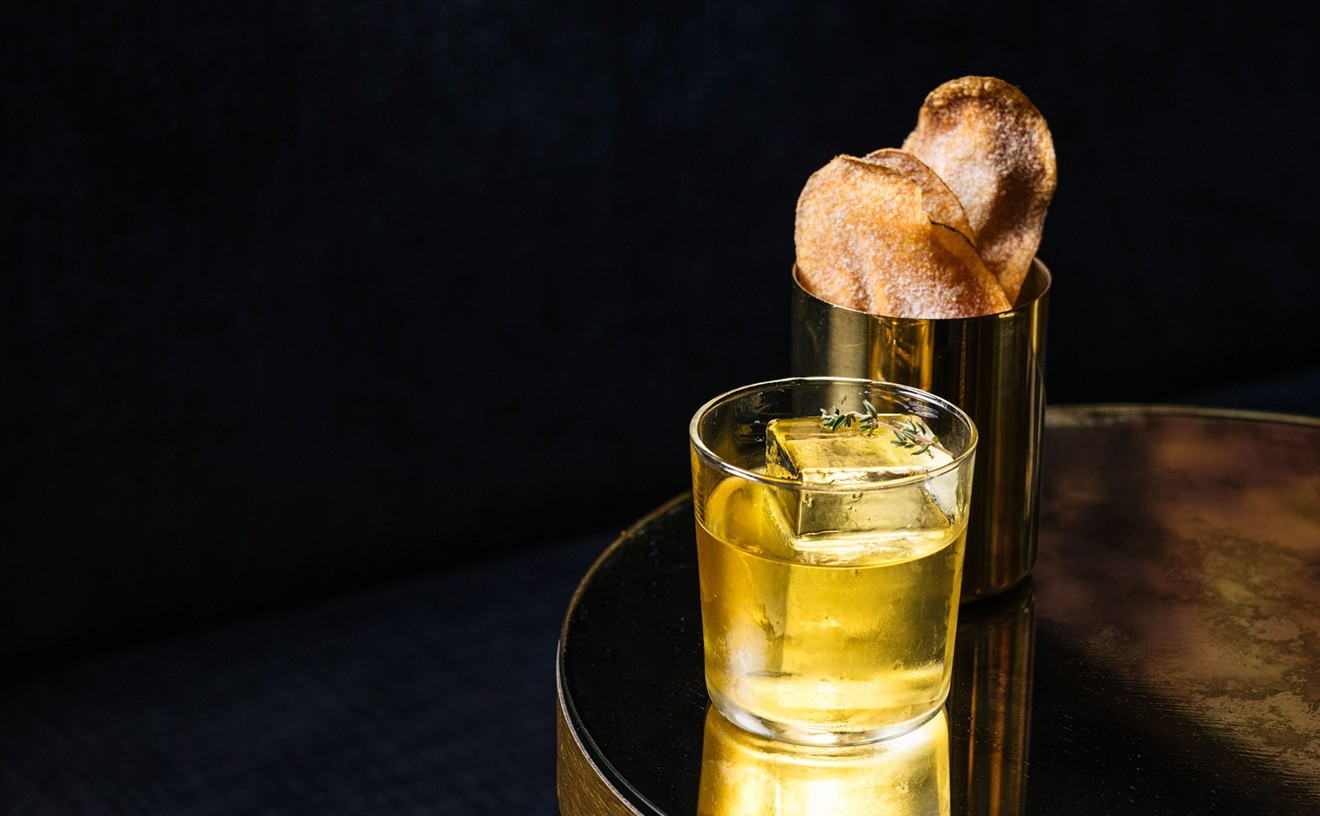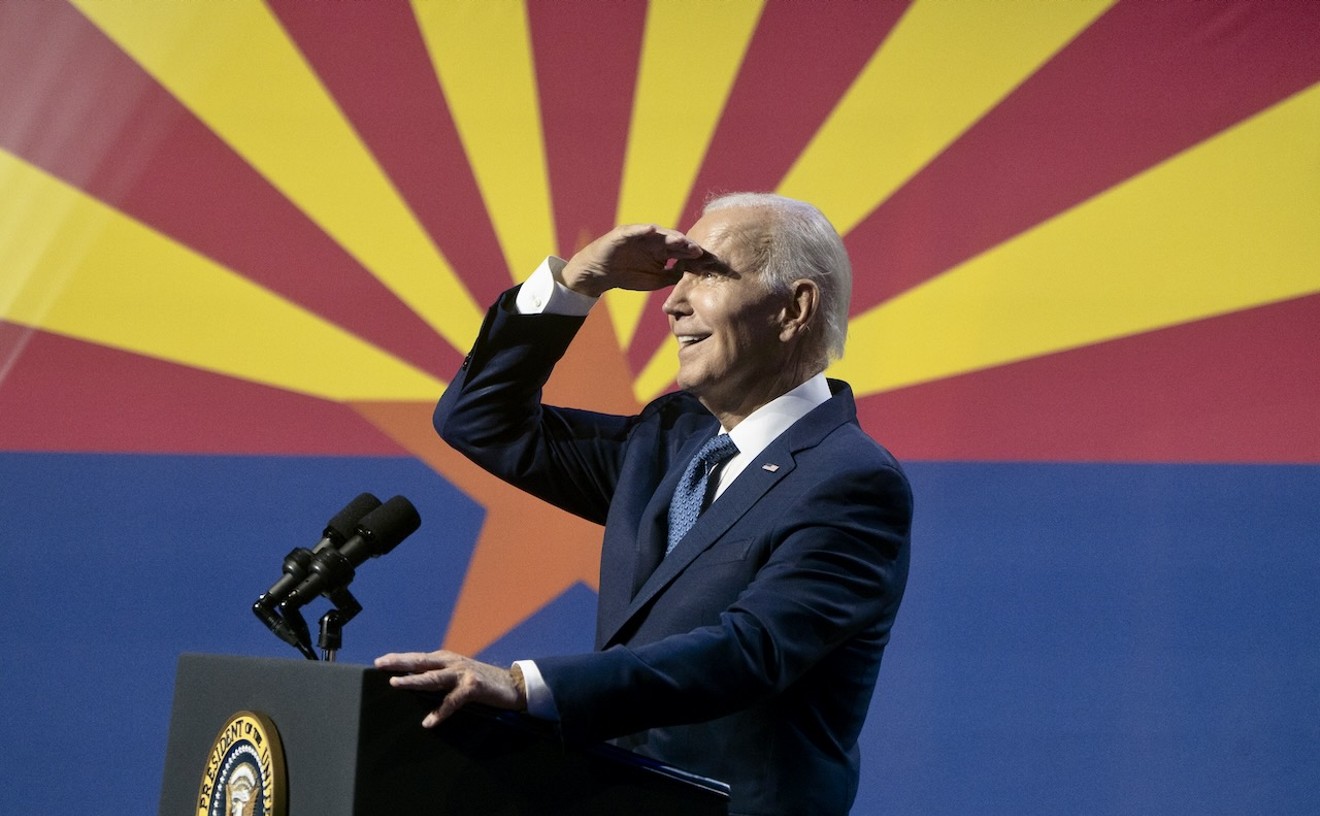This is part two of my interview with Noca chef Claudio Urciuoli. If you missed Monday's interview, in which he dished about Olive Garden, truffle oil and the weirdest thing he ever ate (which pretty much tops everybody else's), read it here.
Best food memory: I have a lot, but I would say being with my family when my grandma cooked, being with my aunts and cousins, my mother, everyone. These dinners, they were very simple, a labor of love. I remember sitting at the table with my cousins. The memory is of the people, the whole picture of eating together.
Dish, trend, or catchphrase you wish would go away: I don't get affected by these things because I don't really pay attention. Wendell Berry said, "Eating is an agricultural act." But it's whatever rocks your boat. It's whatever makes you happy. When I see the raw juice trend, I see the product and I say, "Wow! It's $9!" But I believe that food is always a choice. You have to make a choice on many, many things, and you're affected by your ethnicity, your childhood, your environment, everything.
What really turns you off when you're dining at a restaurant?: I never look at that. I'm in a different state of mind. If I go out to eat, I want to eat something I cannot eat cooking by myself. I know the restaurant business in depth. I know many things that could make me mad, but I have no interest in that.
Name one of your favorite places to dine in Phoenix: Sushi Roku, because I have always had great fish there. And I like [chef] Shin [Toyoda].
National/international chef you greatly admire and why: I like Victor Arguinzoniz at Etxebarri [a Spanish restaurant in Basque country]. He cooks everything on a wood-burning grill. His food is very minimalist -- just pristine, beautiful products of his region cooked on fire. His devices, which he created to cook over fire, are genius. And I admire Noma in Copenhagen. They're extremely talented people working in such a harsh territory. They're number one in the world. It's out of the ordinary. My wife is Swedish, so I'm interested in the food of that region, including what's going on with Magnus Nilsson of Faviken in Sweden.
How were you influenced by your parents?: It's fun for me to look at food in an artistic way. My mother was an artist, so I look at the world from an artistic perspective. I went to sculpture school because she wanted me to, but I didn't make it because I could not sit down. My mom always made me do clay work, do little things with my hands, but I didn't have the patience. I really wanted to ride motorcycles. My dad was more into history and philosophy. He went to school and studied the classics. His approach to things was very philosophical. We always discussed important things in a very simple manner. I would read something and he would ask me what I thought of it.
Favorite thing to eat growing up: Many things. We had so much variety, being by the water. But I was more into staying outside. I was a very frugal eater. I didn't pay attention. My dad loved lasagna. I didn't want to eat it. I had issues with the dish. It was too rich for me. I was spoiled on many things. I didn't grow up eating a lot of meat, but I ate a lot of seafood, a lot of legumes, veggies, pasta -- not meat, meat, meat. My grandfather was a hunter, so we did have lots of pheasant and rabbit.
Favorite thing to eat now: I don't really think about eating that much. I forget to eat. I really enjoy coffee in the morning and a piece of bread. If I have a good caffe latte and a piece of bread, I can go for many hours. I like to eat standing -- little tapas-style snacks.
What's great about Italian cooking is . . . it's minimalistic. The best food is just a couple of ingredients because of the fantastic quality of Italian products -- a great piece of Parmigiano Reggiano or a great balsamic. In Italy, we use small artisans who've been doing what they do for a long time. My family was always connected to the little guys who lived off trade. They have products that don't even make it to the market in Italy. Some things are really, really, really regional. I was exposed to this through my family. My uncle would drive for two hours to get a provolone. There I was, stuck in the car. But now I appreciate it.
What did you think of American food when you got here?: When I came, I was intrigued by how everything was organized. In a fast food environment, for example, everything was very clean, very neat, but I never really ate that. My first serious work experience was in Newport Beach. I worked at Il Fornaio. There were five of of us who were Italians from Italy there, and when we sat at the table, we ate what we wanted, like we were in Italy. I was accepted in the family of the executive chef. I was like his son. Living in California, there were a lot of Italians and I was able to find ingredients. And Italian people cooked for me. It was like going to my mama.
What do you think of it now?: Now, you have great American chefs cooking great Italian food. They've been exposed to the culture, and they modify it in their own way. They've put their creative spin on it. American food has had an evolution. Now chefs are interested in local and seasonal, and they take a minimalist approach due to exposure to other cultures. Now, chefs are interested in the origins of the food.
What did you take away from your experience at Il Fornaio?: Those were formative years for me. I learned how to manage a business on the financial side. I met great people and I made great friends. We opened a lot of restaurants together. Larry Mandel brought his vision of original Italian food to the people. There were a lot of Italians working for Il Fornaio and it was very authentic.
What did you learn about bread and baking from Nancy Silverton?: Nancy was a pioneer. What I saw in Nancy's breads, from the space she had, and where she was able to end up . . . she's a fantastic person driven by an immense passion for the bread. I learned a lot from her. She was fanatical about the ingredients. She had that background from living in Europe. Also it was interesting to grow a business that did big volume.
Is your own bread-baking methodology a synthesis of the things you've learned along the way?: I learned from all of them, but the basic skill to make bread came from my family. Just understanding the basic combination of flour and water. I remember the motions of making bread from when I was a kid. Even at Il Fornaio, they followed the Italian tradition. Nancy, too -- done with methods learned from Europe. The most important thing in bread is flour. That was my dad's business -- flour. At Il Fornaio, these guys re-created regional breads of Italy. They made the best ciabatta I've ever had. In Italy, there are a thousand different breads. A great piece of bread will always make people happy. Coming out of the wood-burning oven, I don't think there's any better sensation. It's fantastic.
How would you like to be remembered by your peers?: He was a good guy, and he cared about the people he worked with.
Enjoy this Chef Salad? Check out Nikki's previous interviews with: Claudio Urciuoli Matt Pool of Matt's Big Breakfast Jared Porter of The Parlor Charleen Badman of FnB Tony Abou-Ganim & Adam Seger Charlotte Voisey of Best American Brands Ambassador Steve Olson of Valley Ho Dough Robson of Gallo Blanco Edward Farrow of The Cafe at MIM Greg LaPrad of Quiessence & Morning Glory Cafe Joshua Johnson of Kai Joshua Johnson of Kai Todd Sicolo of T.Cooks Josh Riesner of Pig & Pickle Lester Gonzalez of Cowboy Ciao M.J. Coe of Federal Pizza Steven "Chops" Smith of Searsucker Aaron Chamberlin of St. Francis Michael Rusconi of Rusconi's American Kitchen Chrysa Robertson of Rancho Pinot Lynn Rossetto of The Splendid Table Cullen Campbell of Crudo DJ Monti Carlo Pete DeRuvo of Davanti Enoteca Chuck Wiley of Cafe ZuZu Justin Beckett of Beckett's Table Bryan Dooley of Bryan's Black Mountain Barbecue Silvana Salcido Esparza of Barrio Cafe Jeff Kraus of Crepe Bar Bernie Kantak of Citizen Public House James Porter of Petite Maison Johnny Chu of SoChu House Neo Asian + Martini Bar Stephen Jones of Blue Hound Kitchen & Cocktails Chris Gross of Christopher's Restaurant and Crush Lounge Chris Curtiss of NoRTH Arcadia Payton Curry of Brat Haus Mark Tarbell of Tarbell's Josh Hebert of Posh Kevin Binkley of Binkley's Restaurant Lori Hashimoto of Hana Japanese Eatery Larry White, Jr. Lo-Lo's Fried Chicken & Waffles










